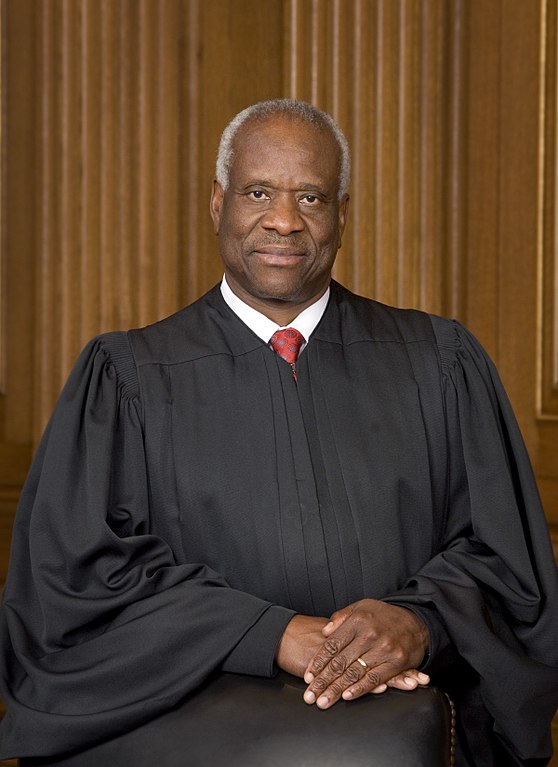The recent political climate has been about as wonky — regardless of what “side” you’re on — as anyone could have predicted. It moves faster than I can honestly keep up with in terms of news, philosophies, and even parsing out my own feelings on the issues. So what follows are some thoughts on what seemed to be, at the beginning of the Trump Presidency 2.0, a foundational idea in the GOP for his second term. It may seem no longer as relevant, but I think it still has philosophical bearing on how we might read the last ~year of a Republican White House, and the controversies that have ensue.
The general project of the Trump Administration 2.0 so far has been, unsurprisingly, overshadowed by the news’ obsession with whatever particular controversy is trending right now. The meta-narrative was in the public consciousness only ever-so-briefly, before Trump 2.0 had the time to build up enough specific actions which could be obsessed over. But this meta-narrative—the Trump executive philosophy we might say, as far as “philosophy” has any relevance to Trump’s body of work—is still the main debate behind the concrete power struggles still cycling through the news: the unitary executive theory (UET).
In brief, UET is a constitutional theory that says the President has complete and lone control over the entirety of the executive branch. It’s the idea behind Trumps insistence on his sole hiring and firing power for every bureaucrat broadly considered “in the executive branch,” from Jo-Smo office clerk at the Department of Health and Human Services to Jerome Powell at the Federal Reserve.
And at first blush, this sounds like just another Trumpian shift in the conservative movement towards power and centralization. But, while Trump has expanded the traditional idea of UET slightly, by-and-large it’s a classic conservative approach dating back to at least Reagan.
This is surprising—at least to someone like me who views conservatives as concerned with liberty and small-government. Why should conservatism, historically identifying as they do with limited government and narrow constitutional interpretation, endorse a constitutional theory that would obviously seem ordered towards greater consolidation and power in the President?
The simple answer is “because the Constitution says so.” A narrow reading of the text vests the executive power in the President, full stop.
But I don’t find this fully explanatory of a conservative attraction to the theory. The real push for it over the years from the right comes from another Constitutional crisis: the administrative state.
The Constitution gives limited powers to the Federal Government in general, but gives the bulk of those powers to Congress. This is the most democratic and representative part of our federal government, locally beholden to the people and the State they hail from. But over the years, Congress has delegated out most of its authority to various federal agencies that now fall under the executive branch. And these agencies create a vast and complex bureaucracy that increasingly touches every aspect of American life, from business to education to home improvement.
But this administrative apparatus is not merely executive. It’s legislative, coming up with the specific regulations and rules in their domains wholesale, and juridical—trying and punishing for violations of those regulations autonomously. Not only is this uncomfortable from a conservative Constitutional framework, as said Constitution gives no provisions for such an array of powers in these agencies, but it’s in principle unrepublican. These agencies and their staffers are not beholden to the people nor the States. They are appointed without election, often hold office without answering to any singular elected official, and bear vast powers the Framers envisioned belonging solely to elected representatives or the elected executive. And, since these agencies and powers have been situated (for better or worse) in the executive branch, they should answer to the executive President as the elected official of said branch.
Nothing in recent memory underscores this problem better than COVID. Remember how our State, the entire country, and even the whole world was shut down by unelected bureaucrats in “public health,” who ruled us like kings for over a year with draconian regulations and violent crackdowns. Trump was in office then, and didn’t seem to have the practical political power to do anything about these agencies. Despite falling under his branch of government, many of the staffers and leaders were (and mostly still are) installed as “independent,” meaning in theory unaccountable to anyone but a Congress that lacks an established mechanism to effectively remove them. And we’re seeing the same problem in different ways in Trump 2.0 today—unelected agencies and bureaucrats are standing in the way of the agenda of a popularly-elected President and his popularly-elected Congressional party.
So there is a real problem. But I think the Trumpian UET is more of a Bandaid on the symptoms than a solution, and a Bandaid that may make the wound more infected.
Because there’s actually several problems with the balance of power in our government right now, and UET would make most of them worse. The primary one is Congresses abdication of her duties and powers towards the American people. We’re in this situation first because Congress has delegated much power to the executive, while simultaneously trying to ineffectually hold on to some say over that delegated power. In short, Congress has tried to maintain its powers without its responsibilities. This creates the situation of various agencies “in between” the branches of government, borrowing the authority and powers of all of them without being fully subject to any of them.
The second problem is the collection of power in the federal government writ large. Congress and the President have considerable more say of the lives of Americans than was pictured in the Constitution, and have far outpaced the States as the locus of law and authority in our society. No where is this more clear than the federal agencies, who have their tentacles everywhere and in every aspect of common life.
The third problem is the lack of accountability caused by this massive accumulation of power improperly delegated between branches. The checks and balances of our government function by the equal and effective counterweight of all three branches against the other. When one branch gets bloated, or one atrophies, the check and the balance is upset.
UET either does not address or makes worse each of these three background problems in the name of solving the surface issue of the administrative state’s accountability.
An example may help. Let’s say there’s a family with a few children. The parents have many nosey friends, who are constantly over the house and disciplining the children over their wardrobe choices. What is the problem, and what’s the solution?
Well, one big problem is the twisting of roles. The parents are the ones who discipline, not random neighbors.
But let’s say that the parents take back over and start punishing their kids over what color socks they wear. Is that actually better? There’s still a big problem of adult heavy-handed interference in the proper freedom of a child to pick out her own color socks and put them on her own feet in her own home. In that situation, it’s probably actually better for the children to have the friends and neighbors low-level interference, as disordered as it is, to act as a buffer against the harsh over-discipline of the parents. What’s best for the child is to have her parents be in control of her clothing to the extent that is helpful for her, i.e. with regards to modesty or safety or to some level of social acceptance, while still giving broad freedom for her to learn choices and grow into her own agency and preferences. It’s undesirable to have non-parents primarily take that role, it’s harmful to have non-parents take that role incorrectly/over zealously, it’s harmful to have parents to the same, and it’s most harmful to have anyone do so without opposition or guardrails.
Which brings us back to UET. Congress has simultaneously given away too much authority and let the larger government take to itself too much authority. They’re both problems. But UET would only serve to solidify and increase that power devolution to the executive branch. Congress’ delegations have come with strings attached. Strings that are woefully inadequate, but still better than no strings. The ultimately solution is for Congress to pull those delegations back to itself; but, barring that, better to have this half-and-half than raw executive power!
And the result of UET is greater executive power, since now the President has sole control over the delegated agencies (and corresponding legislative powers) whereas now he has to battle the agencies own Congressionally-propped up bureaucracies. Since these delegated agencies are in total incredibly powerful and over-involved in American society, the power accumulation to a unitary-executive President would be significant. And, since it would make the President’s power unitary in his person, it would further stress the checks and balances of government and disrupt the large chunk of society that these agencies now control.
Thing again of the analogy. Would it be better for the children to have interfering, nitpicky neighbors with weak-willed parents, or to be raised entirely by those neighbors with no parents at all? Because the parents in the analogy aren’t really the President and Congress as husband and wife, but Congress alone. The two traditionally conservative goals are smaller government and more representative government, and right now we have large, intrusive government and a bureaucratic, non representative administrative State. UET focuses on the non-representative part of the problem, while simultaneously making the big government problem worse. And it does so while not effectively solving the non-representative problem, either, since it concentrates this immense bureaucratic power into a single man with less frequent elections and with one of the least popularly-representative electoral processes of all our representatives. Congress is representative of the people (the House) and the States (the Senate). The President isn’t really a representative at all, but an executor of the will of the representatives. That’s why he’s elected by State representatives, and even then with the intentional and open possibility of those representatives voting against the will of the people in their State.
So, despite its history with conservatives, it seems to me UET is opposed to small government principles. Sure, the current administrative state isn’t in line with those principles, either. But, short of actually fixing the problem of Congressional devolution, I’d rather have agencies that at least are difficult for politicians or any singular person to move and wield against the American people or other beaches of government. Because non-representation in government is still a lesser threat for conservative governance than unitary dictatorial power.
What then should we make of Trump’s recent moves towards consolidating the executive branch? In essence—it depends.
Despite what I said before, the executive is unitary and does have legitimate powers. And, leaving aside the larger questions about his agenda, some of Trump’s moves are simply stronger leadership in service of that agenda (for example, exercising his legitimate control over aspects of purely-executive agencies like with DEI issues). But it gets stickier with other agencies. He has made moves towards control over Congressionally-created agencies that were made to have some level of independence from the executive. In these cases, he may merely be following conservative Unitary Executive Theory—but I think in the long term this will bite conservatives more than it helps them.
Congress has given a lot of its authority to the executive branch over time, but with limitations. They never should have given this power in the first place. But they have—so take those Congressional limitations away from the executive branch while keeping the Congressional powers given to the executive branch, and you have seriously bolstered the executive power.
And that’s not a very conservative thing to do. Even when the President is Red.



